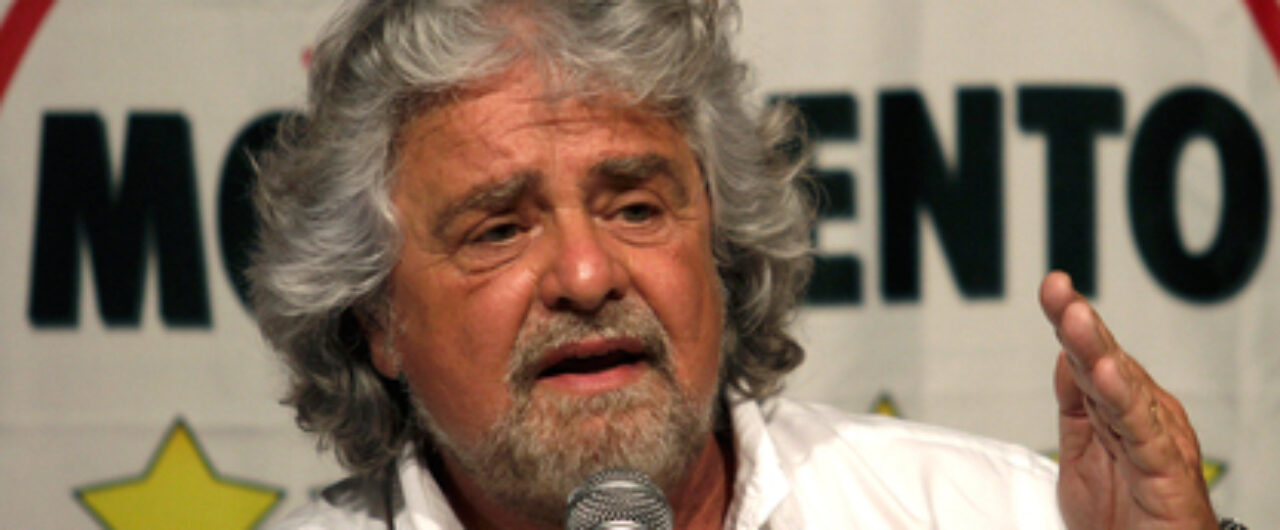Italy has a long history of populist parties. However, with the 5 Stars Movement a new, somewhat peculiar actor entered the scene. What form does its populism take, particularly in relation to the Northern League? And how does Italian populism compare to the recent rise of the Alternative für Deutschland (AfD) in Germany?
Europe does not seem to be able to avoid populism. Even Germany, one of the few countries where populist parties have not registered any electoral success over the past two decades, is now confronted with the emergence of the movement Pegida and the rise of the party Alternative für Deutschland (AfD).If successful, populism represents a rather new phenomenon in Germany, whilst populist waves have regularly occurred in the Italian political system since the end of the Second World War, and even earlier. As a matter of fact, Italy has been considered an ideal stage for the insurgence of populist parties and movements during the so-called Second Republic (a term which denotes Italy from 1992 onwards).
To account in any detail for the reasons for the Italian development is beyond the scope of this article. Instead, the current forms of populism in Italy shall be analysed and subsequently compared to the German case.
Right-wing populism in Italy
The discussion of the Fascist legacy – which was very much influenced by Mussolini’s populist conception of the relation between the leader and the masses – represents only the beginning of a longer debate on populism that reached its zenith after the beginning of the political career of the television tycoon Silvio Berlusconi and his party, Forza Italia. After the withdrawal of the last Berlusconi government in 2011, new forms of populism, along with new individual and collective populist actors, have emerged.
The typical right wing anti-élite and xenophobic populism is represented by the Northern League (Lega Nord). The Northern League combines its traditional anti-elite appeal with an evident xenophobic and Anti-Islamic rhetoric. Anti-immigration stances have always represented one of the core issues of the party. Since the change of the party’s leadership from the Northern League founder, Umberto Bossi, to the current young leader, Matteo Salvini, they constitute the leading message of the party. The abandonment of the traditional Northern centered request for federalism or secession of the Italian Northern regions has coincided with the call for a homogeneous community and the relevant fight against illegal immigration and the “refugee invasion”.
Euroscepticism is also part of the Northern League populist recipe, and slogans for the abandonment of the Euro are used as a reinforcing argument in the disdaining description of the EU elites and the EU bureaucracy. With its ethnocentric and xenophobic appeal to the people, the Northern League can be understood as the typical example of right wing populism. The recent results of the Austrian presidential elections in May 2016 show the attractiveness of this form of populism in Western European countries.
Beyond the left-right cleavage? The 5 Stars Movement
However, the Northern League’s populism is not the only form of a direct appeal to the people in Italy, as another form of populism has emerged in Italy during the last few years: The unexpected success of the 5 Stars Movement (Movimento 5 Stelle) in the 2013 general elections (25% of the votes) points to a rich populist reservoir within the Italian electorate.
Created by the famous comedian Beppe Grillo as an internet blog aimed at denouncing political and social scandals, the M5S does not have any problem in presenting itself as the harbour for the disenchanted citizens, dissatisfied with the Italian parties and, more in general, its economic, social and cultural elites.
Grillo’s appeal to the people entails classic populist elements:
- a manicheistic differentiation between the evil (the political class, the parties, the economic elite, finance, globalization) and the good (the honest citizens, the virtuous people characterized by a natural collective wisdom opposed to the elites selfishness and incompetence),
- the call for a society based on integrating and not divisive values, and
- the demand for traditional forms of direct democracies in society as well as within the movement.
In addition, despite the often repeated slogan that “each person is worth one”, the existence of a strong leadership cannot be denied in the case of M5S, and many examples could be cited illustrating a highly centralised management of the movement.
Vis-à-vis policy issues, the M5S offers a less coherent image in comparison to the Northern League. The five stars standing for the five top issues of the movement since its appearance (public management of water, sustainable mobility, development, connectivity, environment) can be understood more as a symbol than a real party program.
The organisational structure of the movement – centralized in the direction but highly differentiated in terms of local branches – is responsible for an evident variation in the selection of issues and the party management. Consequently, there have been conflicts between the position expressed by Beppe Grillo in his blog and the decisions taken on the online platform by the movement’s members. This lack of homogeneity has occurred in the discussion of central issues such as immigration, where the M5S members have expresses a more liberal position than Grillo’s one.
The M5S’s populism is thus neither right wing nor left wing, but resides in the appeal to the people, in the continuous and vehement critique of the national and international elites, and in the claimed purity of the Movements’ political class, which should be coherent with the people’s purity. The European Union is a privileged enemy in Beppe Grillo’s blog posts. No EU institution is safe from Grillo’s harsh and irreverent critique. But again, in terms of proposals the M5S does not demand the abandonment of the Euro, which is a typical rhetoric in the Northern League political offer. After the result of the Brexit referendum, the Five Stars Movement has not celebrated the Brexit decision, as the northern League did.
Despite the above cited differences, both the Northern League and the Five Star Movement offer a clearly populist appeal based on offering easy solutions to complex problems, an opposition to cooperate with traditional parties, and the use of conspirative tones in the description of the mainstream media.
Italian and German Populism compared
Are these features also prevalent in German populism, as it has been developing in the last few years? Partly yes, if we consider the anti-immigration positions of the AfD, the vehement Islamophobia of the Pegida Movement, their anti-elitist and anti-establishment critique with a particular focus on the traditional parties and the mainstream media. The appeal to the virtuous people is indirectly represented in the AfD by the slogan Mut zur Wahrheit (The courage of the truth), which points to an elite conspiracy against the honest people. It is also directly expressed in the Pegida’s slogan “Wir sind das Volk”. Partly not, if we take into account the diffusion of a broad “populist Zeitgeist” in the Italian party system in contrast to the political nature of German populism, mostly based on the successful “right wing model” currently widespread in Europe, and indisputably (even if not exclusively) linked to the refugee crisis and its management.
The most striking differences between Italian and German populism derive from the novelty that populism represents in the German political and party system. The current polarization of both the political system and the society in response to the rise of parties like the AfD and movements like Pegida is not so evident in Italy, where the long lasting confrontation with populist parties and movements has produced a sort of reaction fatigue of the political parties, organised groups, and civil society to the challenges posed by populism to representative democracy and its processes.
Populism is likely to last in Germany, at least in the next few years. This will be the crucial lifespan in which the political elites may decide the fate of populism in Germany. It is their responsibility – in cooperation with the media, pressure groups, and civil society – to determine whether populism will be a transitory period in the political system of the German Federal Republic, or if – like in Italy – it will take root in German politics and society.
This article first appeared on the blog of our project TruLies – The Truth about Lies on Europe. For more information about this project, click here.




